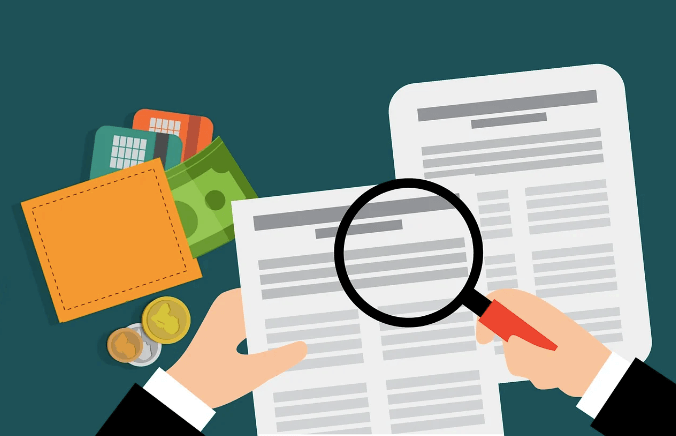Your credit report serves as a financial dossier, documenting your credit history and providing a snapshot of your creditworthiness. Among the various entries on your credit report, you might encounter closed accounts.
But are closed accounts on a credit report bad? In this comprehensive guide, Finger Finance will explore the implications of closed accounts, why they appear on your credit report, and how they can influence your overall credit health.
Understanding Closed Accounts
Closed accounts are categorized into two types which are closed accounts in good standing and closed accounts with a negative history. A closed account on your credit report refers to a credit or loan account that is no longer active. This could be due to various reasons, including:
- Paid in Full: You have successfully paid off the entire balance of a loan or credit card, leading to its closure.
- Account Closure Request: You or the lender initiated the closure of the account, often due to changes in financial circumstances, a switch to a different financial product, or a strategic decision by the lender.
- Inactivity: Some creditors may close an account if it remains inactive for an extended period.
Are Closed Accounts On Credit Report Bad?
Closed Accounts in Good Standing
When you close an account that is in good standing, meaning you have paid off the balance and fulfilled all contractual obligations, it generally has a positive impact on your credit report. Here is why:
Positive Payment History: The closed account contributes to your positive payment history, showcasing your ability to manage credit responsibly.
Credit Utilization: Closing a credit card account can impact your credit utilization ratio positively. This ratio is the relationship between your credit card balances and your credit limits, and a lower ratio is generally favorable for your credit score.
Age of Accounts: Closed accounts continue to contribute to the average age of your credit accounts, which is a factor in determining your credit score. The longer your credit history, the better it may be for your score.
Reduced Debt Load: Paying off and closing installment accounts, such as personal loans or auto loans, can positively influence your creditworthiness by reducing your overall debt load.
Closed Accounts with a Negative History
On the flip side, closed accounts with a negative history can have a different impact on your credit report. If an account is closed with outstanding balances, late payments or other negative notations, it can affect your credit score and overall creditworthiness. Here is why:
Negative Payment History: If a closed account has a history of late payments or defaults, that negative information remains on your credit report for a specified period, typically seven years. This can lower your credit score and affect your ability to qualify for favorable credit terms.
Credit Utilization Impact: Closing a credit card account can impact your credit utilization ratio negatively if you have other outstanding balances. This might result in a higher ratio, potentially affecting your credit score.
Impact on Credit Mix: The closure of certain types of accounts, such as credit cards, can impact your credit mix. A diverse credit mix, including both installment and revolving accounts, is generally viewed positively by creditors.
What Is The Impact Of Closed Accounts On Credit Scores?
Your credit score is influenced by various factors, and the presence of closed accounts plays a role in shaping this important financial metric. Here’s how closed accounts can impact your credit score:
| Positive Impact: | Closed accounts in good standing generally have a positive impact on your credit score, contributing to a healthy payment history, lower credit utilization, and a more extended credit history. |
| Negative Impact: | Closed accounts with negative history, such as late payments or defaults, can have a negative impact on your credit score. Negative information associated with closed accounts can linger on your credit report, affecting your creditworthiness. |
| Temporary Impact: | The impact of closed accounts, whether positive or negative, might be more pronounced in the short term. Over time, as your credit history evolves, the influence of closed accounts on your credit score may diminish. |
Tips for Managing Closed Accounts on Your Credit Report
1) Regularly Check Your Credit Report
Stay vigilant by checking your credit report regularly. Reviewing your credit report allows you to identify closed accounts, verify their accuracy, and address any discrepancies.
2) Understand the Closure Reason
If you initiated the closure of an account, understand the potential impact on your credit. Consider the factors, such as credit utilization and credit mix, that may be affected.
3) Negotiate with Creditors
If a closed account has negative information, such as a late payment, and you believe it was reported in error, consider reaching out to the creditor to discuss possible corrections.
4) Focus on Positive Credit Habits
To counteract any negative impact from closed accounts, focus on maintaining positive credit habits. This includes making on-time payments, keeping credit card balances low, and managing your overall debt responsibly.
5) Diversify Your Credit Mix
While you cannot change the status of closed accounts, you can diversify your credit mix by responsibly managing a variety of credit types, including credit cards, installment loans and mortgages.
The Bottom Line
In conclusion, the presence of closed accounts on your credit report isn’t inherently good or bad. It depends on the status of the accounts and their associated history.
Closed accounts in good standing can contribute positively to your creditworthiness, while closed accounts with negative history may have a more adverse effect. Understanding the factors that influence your credit score and adopting sound credit management practices are essential for maintaining a healthy credit profile. Regularly monitoring your credit report and addressing any inaccuracies or discrepancies can empower you to make informed financial decisions and ensure your credit history accurately reflects your creditworthiness.




